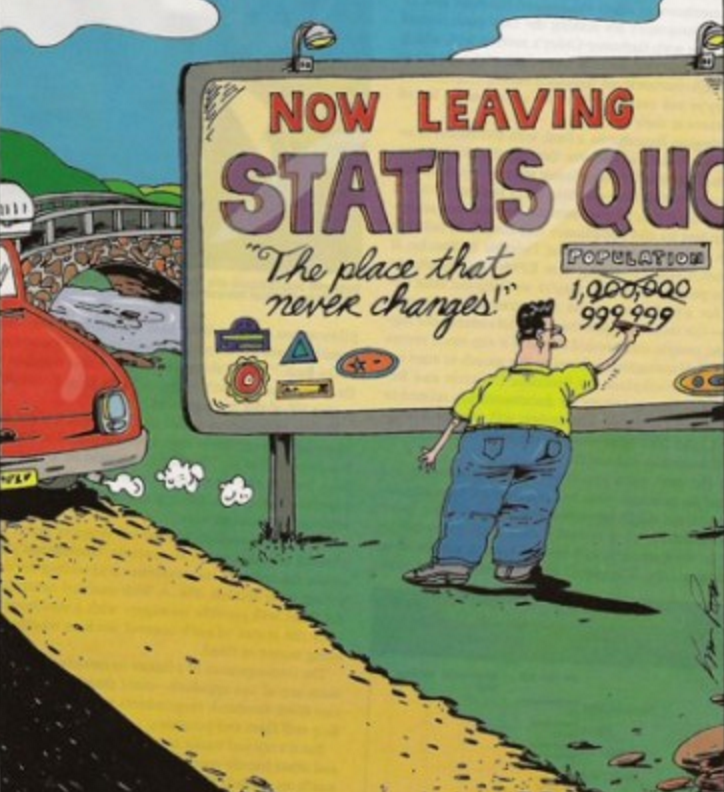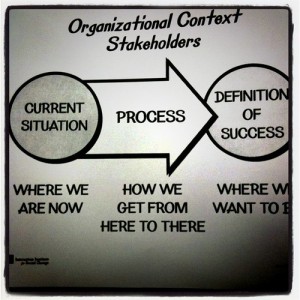Crowdfunding Community
When we talk about networks we tend to think scale, we think viral. But networks are also about community. Networks can thrive in that mysterious place where the most local intersects with the global.
Leave a commentWhen we talk about networks we tend to think scale, we think viral. But networks are also about community. Networks can thrive in that mysterious place where the most local intersects with the global.
Leave a comment
A big shout out to our colleagues at the Kirwan Institute for the Study of Race and Ethnicity. Their recently released report “State of the Science: Implicit Bias Review 2013” reviews what science can tell us about what implicit bias is and how it works, why it matters and how to reduce it. Here’s a quick recap:
Implicit bias results from the way our brains process data and experience. We’re wired for pattern recognition and our brains use lots of shortcuts to make sense of the world around us. In and of itself, this isn’t necessarily a good or bad thing. But, so many of the implicit associations we make are laden with stereotypes—say, between women and family, vs. men and careers. (Check out the Project Implicit to explore your implicit biases.) We absorb these associations from the world around us and they become part of our unconscious “operating system.”
7 CommentsThe following post was rebloged from our friend Adrienne Maree. We hope you enjoy it as much as we did!
If you are a frequent reader you know of my love and admiration for Adrienne Maree Brown. She is the one who introduced me to the work of Octavia Butler. Art, science fiction, futurism – these are powerful exploratory fields. Here Adrienne begins to capture what Octavia teaches us about emergence, and since we have been on the topic lately, I thought it important to share her post.
Leave a commentOur colleague Bill Traynor describes essential inputs and outcomes of network organizing. See what you think!
In a recent presentation to the Ways and Means Staff of The Community Builders, we discussed the primary inputs and resulting added value that the Network Organizing practice can bring to a service environment. This slide captures the essence of this.
1 CommentThe following comments was posted by Gibran as a response to Curtis Ogden‘s Collective Impact and Emergence blog post. In it we are challenged to think beyond our institutions and think about how to truly impact the communities we work with.
This is excellent Curtis. It brings me back to one of our most important inquiries – how do you nurture the conditions for emergence? With this inquiry, we are not just saying that emergence happens; we are saying that our best approach is to nurture it. It is a significant shift from a more top-down technical approach.
Leave a comment
I have appreciated the growing literature around what has been called “collective impact.” These writings from staff at FSG have certainly helped people around the country engaged or aspiring to engage in collaborative multi-organizational change work to develop shared language around some of the important underpinnings of walking this path. I have also voiced some concerns about what is NOT mentioned in these writings, including some of the critical process elements and experiences that are core to this work.
So I am heartened that in their most recent installment, “Embracing Emergence: How Collective Impact Addresses Complexity,” the authors recognize that Collective Impact is not simply a recipe to be followed and that its unique unfolding is part of its power. Read More
Leave a commentThe following post has been reblogged from our friends at yes! Magazine. We hope you enjoy it as much as we did!
Nature surrounds us with expressions of the organizing principles that make possible life’s exceptional resilience, capacity for adaptation, creative innovation, and vibrant abundance.” Read on as David Korten outlines how paying attention to natural systems can help us develop human systems that will sustain us for the long haul.
Leave a commentI keep making references to Steven Johnson’s book, Future Perfect. That’s because I find it to be one of the best articulations of what has become possible in this networked world. I am seduced by the idea of peer progressivism.
I have long held the hypothesis that those of us who have committed our lives to social transformation should be able to find a significant competitive advantage in a world of networks. Our ethos should be one of sharing, one of working together, one of catalyzing our collective power. Our values resonate with what is possible today. But the time to step into this opportunity is right now – right as it is emerging.
Leave a comment
I was recently turned on to the work of Louise Diamond by the Plexus Institute. Diamond has been bringing insights from the dynamics of complex systems to peace building work for many years. Her efforts connect to a growing number of practitioners and thinkers who see the need to approach social change with an ecological and evolutionary mindset. In one of her papers, she extracts some of the “simple rules” that yield core practices for working in this way. Here I have adapted and adjusted some of them in application to network building for food systems change. Read More
Leave a commentThe following post has been reblogged from our friends at Management Assistant Group. We hope you enjoy it as much as we did!
Robin Katcher, the new director of the Management Assistance Group, is a friend of the Institute’s and a leader among those of us who work to bring an understanding of networks and complexity to the work of social transformation. I found these reflections on the more personal aspects of working with complexity to be specially appropriate for the beginning of a new year.
Leave a commentIISC would like to share our Top 5 most influential post of 2012! Join us until the New Years Eve when we reveal our number 1 blog post!
Fast Company’s has a recent cover story on the new and chaotic frontier of business.
Despite recession, currency crises, and tremors of financial instability, the pace of disruption is roaring ahead. The frictionless spread of information and the expansion of personal, corporate, and global networks have plenty of room to run. And here’s the conundrum: When businesspeople search for the right forecast–the road map and model that will define the next era–no credible long-term picture emerges. There is one certainty, however. The next decade or two will be defined more by fluidity than by any new, settled paradigm; if there is a pattern to all this, it is that there is no pattern. The most valuable insight is that we are, in a critical sense, in a time of chaos.
Leave a commentI had a unique opportunity the other day with a client to do a little year end reflection about the path we have walked with a complex multi-stakeholder change process, which has featured a dive into systems thinking thanks to IISC friend David Peter Stroh. David was actually the one who put the question out there, “What have you gained as a result of adopting a systems thinking lens?” Here is some of what came up in terms of gleanings and appreciation:
Leave a comment